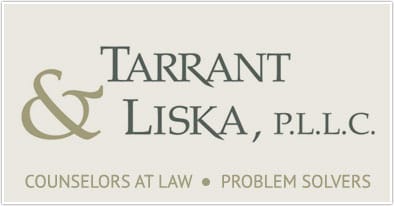Estate Planning Trusts Can Preserve Wealth And Accomplish Specific Goals
Consideration of the use of trusts in your estate plan is a must. There are a variety of trusts that could benefit you and your beneficiaries. Trusts can be established through your will (testamentary trusts) or set up during your lifetime (inter vivos trusts).
Trusts give you control over the management and transfer of assets during your life or dictate what happens with your assets after your death, including:
- When and how assets are transferred
- Who is in charge of asset transfer
- Who will receive asset distribution
- What conditions apply to asset distributions
Advantages of trusts also include greater protection of assets, estate tax reductions and avoidance of probate.
We invite you to explore how trusts can work for you.
Call Tarrant & Liska, P.L.L.C., at 651-315-8738 to schedule an appointment.
Customized Trusts For Different Purposes
Careful analysis and planning are essential to implementing the strategy that is best for your particular situation. We have the expertise to tailor a strategy that accomplishes your goals in the present and the long term.
- Revocable trusts (sometimes called living trusts) are trusts established by you during your lifetime that you can change at any time. You control how and when the trust assets will be distributed, how and when assets will be used, and other requirements for the beneficiaries. These trusts avoid the probate process but do not prevent estate tax liability.
- Irrevocable trusts offer greater estate tax savings than revocable trusts but require you to give up control of any assets in the trust. This type of trust is beneficial for large real estate holdings and life insurance policies. Assets held in an irrevocable trust are not included in your estate for estate tax purposes.
- Testamentary trusts are trusts that you establish in your will. They do not come into existence until you die. They are a common mechanism to use for holding the assets that would otherwise go to young children, or to provide control and guidance to young adults. Testamentary trusts also can be used to allow you to provide for someone during that person’s lifetime yet still control where the remaining assets are distributed upon the death of the person. Providing for a second spouse and your children from a previous marriage is a common use.
- Disclaimer trusts are testamentary trusts provided for in the will of the first spouse to die. Whether the trust is actually funded is left to the discretion of the surviving spouse. Disclaimer trusts are used to minimize estate taxes and still keep the assets in the trust available to provide for the care of the surviving spouse, if necessary. Assets held in the disclaimer trust can be excluded from the estate of the second spouse.
- Supplemental needs trusts/special needs trusts are special trusts used to allow disabled individuals to qualify for public benefits like medical assistance but still have assets available to provide for things that the government will not pay for.
Trusts are very flexible devices and have many other options, tax implications and requirements that you should discuss with an experienced lawyer.
Tarrant & Liska, P.L.L.C., is committed to personal and attentive service to each client. We take the time to understand your needs and goals. Our St. Paul estate planning attorneys have extensive experience helping clients throughout Minnesota create trusts to protect family members, safeguard assets intended for certain individuals exclusively, create tax efficiencies and ensure proper transfer of real estate holdings.
Assistance With Trust Administration
A trustee is a fiduciary and is held to a high standard of care and diligence. Trustees have control over the trust assets but the assets do not belong to them. The trustees have to keep the focus on the needs of the beneficiaries of the trust and cannot use the money for their own benefit. The trustees have to periodically account to the beneficiary for how assets in the trust are being spent and invested. Beneficiaries have the right to challenge how the assets are being spent or invested.
We can help trustees in properly administering the trust, and we can help the trustees if problems arise. We can also help beneficiaries in knowing and enforcing their rights.
Representation In Trust Litigation
Trusts can be challenged by any family member or beneficiary, so it is critical to ensure that your trusts are drafted and established by proper legal documentation with a trustworthy estate planning attorney. Our attorneys represent trustees, grantors, surviving spouses and beneficiaries in a range of matters, including:
- Challenges to trusts based on lack of capacity or undue influence
- Demands for accountings of trust assets
- Challenges to trustees’ transactions relating to trusts
Work With Experienced Trust Law Attorneys
We are responsive, and we ensure close personal guidance, representation and contact with an attorney throughout the legal process. We offer an initial half-hour consultation. Contact us by email or call us at 651-315-8738 (toll-free at 888-342-2493).
Evening and weekend meetings are available upon request. Our offices are conveniently located on Concordia Avenue, just off Snelling, but we travel to meet with clients, if requested.
Payment plans can be arranged, and Visa and Mastercard are welcome.
